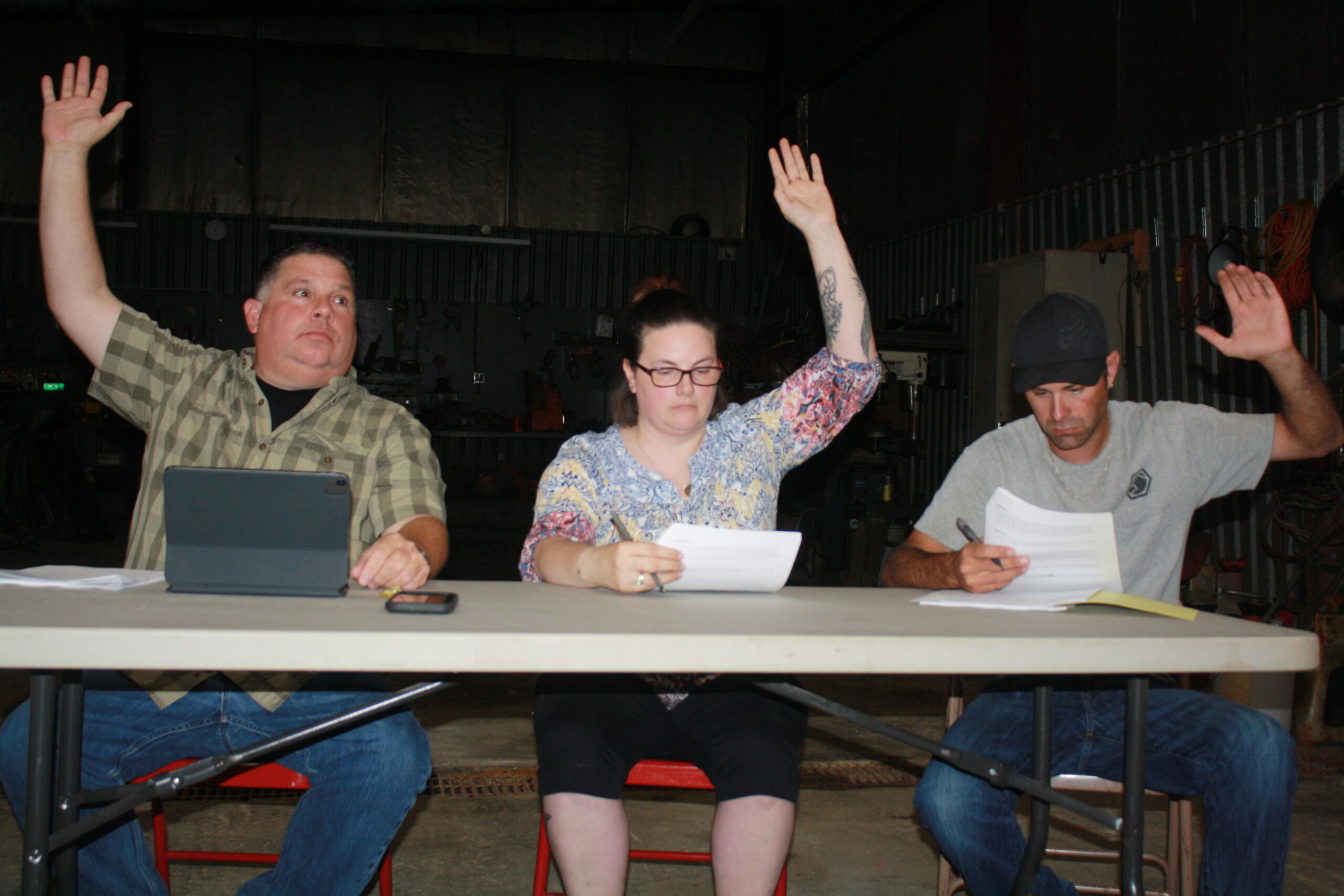
WOODLAND, Maine – Woodland residents approved budgets for both the town and school during the town’s annual meeting Tuesday.
Wayne Smith was elected over Lorraine Chamberlain to serve as the moderator with a 42-25 vote during the meeting held inside the town garage.
The school’s budget totals $2,890,847 compared with $2,748,286 last year. School Union 122, which operates Woodland Consolidated School, will receive $1,929,620 in state funds toward public education, a slight increase from $1,921,469.
Voters agreed to raise $441,443 as the municipality’s contribution to the total cost of funding public education in Woodland, and to raise $235,926 in additional local funds. Last year the town raised $455,383 as their contribution, and $221,987 in additional local funds.
School committee member Robert Butler said that the school pays an estimated $8,400 per child based on the state’s contribution to funding public education.
A majority of the registered voters at the meeting approved budget totals in the following categories: regular instruction, $1,391,473, down from $1,516,502; special education $387,430, up from $330,215; other instruction $51,350, up from $50,050; student and staff support, $211,950, up from $175,965; system administration, $127,665, up from $122,231; school administration, $158,016, up from $145,607; transportation and buses, $124,325, down from $124,589; facilities maintenance, $425,228, up from $272,066; and debt service and other commitments, $13,409, up from $11,059.
Chamberlain asked school leaders why the budget included a steep increase in facilities maintenance.
“My understanding is that this [budget total] is due to an evening janitor position paid with COVID monies,” Chamberlain said. “I understand that the school benefits, but can we afford an evening janitor?”
Superintendent Karla Michaud said that the district felt the position could still be financially supported because the school’s budget will not increase the town’s education portion of the overall mill rate.
The special education budget has increased partly due to ed tech positions being moved from the COVID funds to the regular budget, but also due to increased student enrollment, noted several school leaders.
“We have 180 students [total at Woodland Consolidated School]. That’s the highest we’ve had in 10 years,” Michaud said. “We also need a buffer in there for any [special education] student that needs to attend private specialty schools.”
On the town side, several residents questioned the $200,000 road maintenance line in the proposed $692,600 budget for public works.
“At a budget meeting, the road commissioner [Paul Pelletier] asked for $270,000, but at the next meeting, when he wasn’t there, the [Select Board] dropped it to $200,000,” Butler said.
Select Board Chairperson Matt Cole stated that the board moved $20,000 in staff wages from that line to the budget for public works trucks. They also transferred $50,000 from road maintenance into that budget line after choosing not to repair a public works truck for that amount.
Cole did not return a message Wednesday pertaining to the public works expenses.
While discussing social services contributions from the town during Tuesday’s meeting, Cole confirmed that the town’s books for 2023 did not accurately reflect a vote at last year’s town meeting to reduce Aroostook County Action Program’s allocation from $485 to $200.
Residents opted to keep ACAP’s allocation at $485 this year.
The $5,670 total in social services contributions also includes American Red Cross, $350; Aroostook Agency on Aging, $150; Caribou Emergency Management, $200; Catholic Charities of Maine, $100; Central Aroostook Soil & Water Conservation District, $250; Healthy Families Aroostook, $100; the Sister Mary O’Donnell Homeless Shelter, $2,305; Woodland Cemetery Association, $280; Woodland Historical Society, $1,100; and Woodland Ski Trail, $250.
Voters also approved budgets for general government $211,500, up from $193,600; insurances, retirement and payroll liabilities, $97,500, down from $99,169; solid waste disposal, $68,000, no change; $152,125 for Caribou Fire & Ambulance coverage, no change; $20,000 for discounts and abatements, no change; and $1,000 for General Assistance, down from $1,500.

Voters approved the following amounts for town reserve accounts: office equipment, $1,000; highway equipment, $60,000; building repairs, $10,000; tax assessment, $5,000; planning board, $25,000; and equity replacement, $20,000.
The town opted to not pass a proposed ordinance establishing Woodland as a “food sovereign” town after many residents said they did not understand what that would entail.
The Maine Food Sovereignty Act, passed in 2017, allows food producers to sell directly to consumers on land they own, lease or rent and excludes those producers from state food safety regulations. According to state statute, the Act is intended to support small-scale food production, including on family farms and homesteads, and enhance local food security. Towns can adopt their own food sovereignty ordinances in accordance with the law.
In Nov. 2021, Maine voters supported adding a “right to food” amendment to the state’s constitution, which states that residents have “a natural, inherent and unalienable right to grow, raise, harvest, produce and consume food of their own choosing.” Woodland voted against that amendment by 54.4 percent, while 45.6 percent were in support, according to local election results.
Woodland Planning Board member Ted St. Pierre said that the planning board will need to review the proposed food sovereignty ordinance before it goes to a town vote.
Correction: A previous version of this story misstated the nature of enrollment trends at Woodland Consolidated School.







